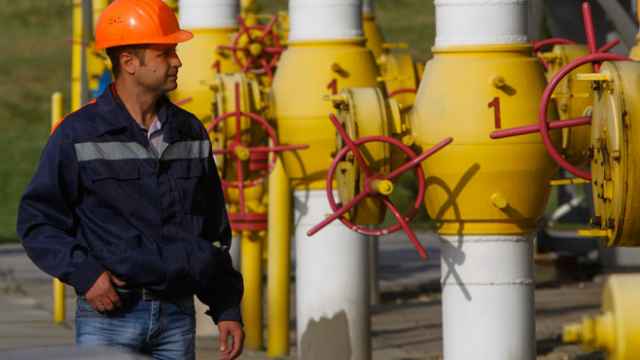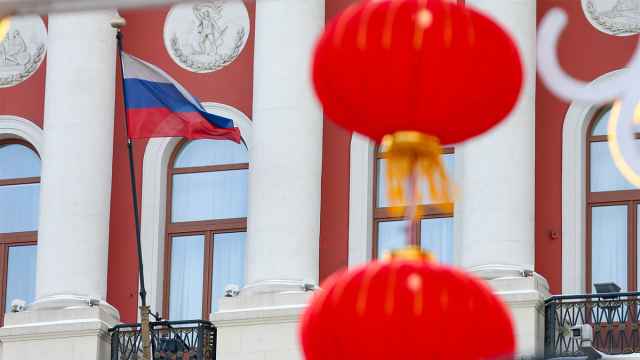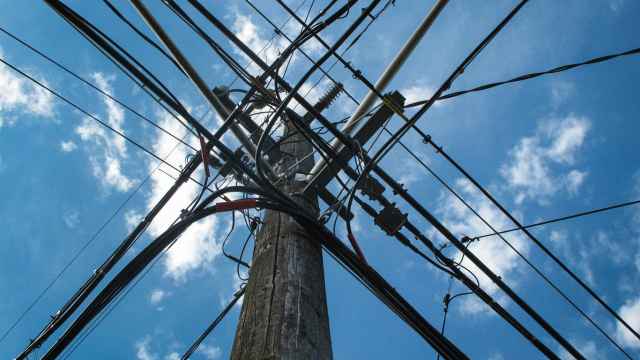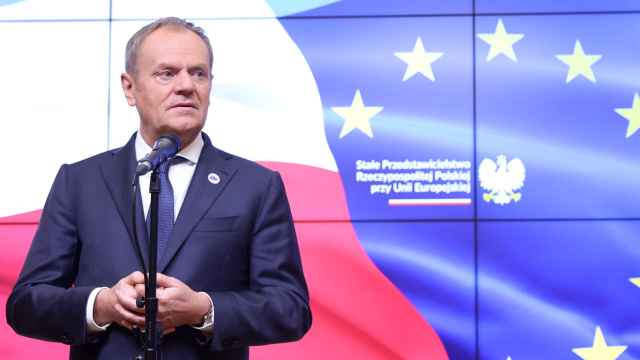The main hope for Ukraine's shattered economy lies buried beneath the rubble left by months of fighting in two eastern regions that are home to much of its crippled industrial power.
Only when industrial production pulls out of a dive and achieves growth is the currency likely to stabilize, a step toward restoring confidence in the economy, which is shrinking at its fastest pace since the global financial crisis year of 2009.
The separatist conflict has closed steel plants and coal mines and destroyed infrastructure in Luhansk and Donetsk, regions that together once accounted for a sixth of the national economy and a quarter of industrial output.
"Our mine is in terrible condition. We're existing only on hope," said Yury, a worker at Zhdanovskaya — Ukraine's fourth-largest colliery with coal reserves of 40 million tons that halted output in August.
The regions' economic clout means that the damage wrought by relentless artillery fire as government forces fight the pro-Russian rebels is felt nationwide.
The World Bank said last week that the government would have to shelve hopes of economic growth until 2016, forecasting a contraction of 8 percent this year and 1 percent next year because of the disruption to activity in the east.
Alarmed by a crisis that has killed more than 3,500 people and poisoned relations between Kiev and Moscow, investors have dumped Ukrainian assets, pushing bond yields sky-high and the hryvna currency to historic lows.
The hryvna, which is trading at about 12.90 to the dollar, has lost almost 38 percent in value since the start of the year. In a Reuters poll, analysts have estimated the economy shrank 9.5 percent year-on-year in July-September. This year will mark its worst performance since 2009, when gross domestic product (GDP) tumbled about 15 percent.
While sporadic violence between government and rebel forces is testing a shaky cease-fire, the central bank is pinning its hopes for financial recovery on the very regions where the insurgency has pushed Ukraine to the brink of economic collapse.
"Only the situation on the industrial market, industrial growth, can stabilize our currency," central bank head Valeria Hontareva said Monday, looking forward to a modest recovery in the hryvna's rate. "As soon as we rebuild it [industry], we'll think of rates of at least 11.70 rather than 12.95."
Industrial output, which accounted for a quarter of GDP in 2013, plummeted 21.4 percent year-on-year in August and little has yet been done to restore production at the factories and mines, around half of which are standing idle.
Ukraine's largest steelmaker Metinvest, several of whose plants are not operating due to the conflict, warned in August of the devastating economic impact of stopping metals production in the country.
The industrial shortfall is weighing heavily on Ukraine's already depleted foreign currency reserves. Normally a net exporter of thermal coal, the country has had to start buying the fuel from abroad as it battles a power crisis that threatens to cause rolling blackouts across the country.
As of Sept. 1, Ukraine had reserves of $15.8 billion, 22 percent lower than at the start of the year.
A Message from The Moscow Times:
Dear readers,
We are facing unprecedented challenges. Russia's Prosecutor General's Office has designated The Moscow Times as an "undesirable" organization, criminalizing our work and putting our staff at risk of prosecution. This follows our earlier unjust labeling as a "foreign agent."
These actions are direct attempts to silence independent journalism in Russia. The authorities claim our work "discredits the decisions of the Russian leadership." We see things differently: we strive to provide accurate, unbiased reporting on Russia.
We, the journalists of The Moscow Times, refuse to be silenced. But to continue our work, we need your help.
Your support, no matter how small, makes a world of difference. If you can, please support us monthly starting from just $2. It's quick to set up, and every contribution makes a significant impact.
By supporting The Moscow Times, you're defending open, independent journalism in the face of repression. Thank you for standing with us.
Remind me later.





